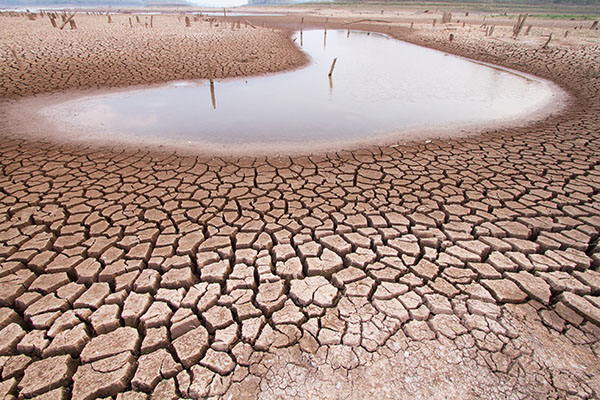
An “agenda contributor” for the World Economic Forum, Professor Mariana Mazzucato, spelled this out very clearly in a clip from the group’s meeting in Davos last year that has recently gone viral.
In the clip, she shares her disappointment that climate change and COVID-19 vaccines have so far proven unhelpful in furthering their cause but said a water crisis would succeed where those approaches have failed.
During a WEF meeting about the “economics of water,” she said: “Did we actually manage to vaccinate everyone in the world? No. So highlighting water as a global commons and what it means to work together and see it both out of a global commons perspective but also the self-interest perspective, because it does have that parallel, is not only important, but it’s also important because we haven’t managed to solve those problems which had similar attributes. And water is something that people understand.”
The discussion sought to develop a two-year initiative aimed at transforming the economics of water, which they hope will reshape how water is managed for the remainder of the century.
She also appeared to imply that the public is not intelligent enough to understand climate change, but water is something that even children can get on board with.
“Climate change is a bit abstract. Some people understand it really well, some understand it a bit, some just don’t understand it,” she said.
“Water, every kid knows how important it is to have water. When you’re playing football and you’re thirsty, you need water,” she added.
She pointed to the need for cultivating “citizen engagement” on this issue and “experimenting with this notion of the common good.” She also alluded to the WEF continuing to push their climate change and COVID-19 vaccine agendas despite their failures, saying: “Can we actually deliver this time in ways we have failed miserably other times? And hopefully we won’t keep failing on the other things, but anyway…”
At the meeting, the group identified the importance of safe, clean water for human health as well as the growth of economies and launched the Global Commission on the Economics of Water.
The Director of the Potsdam Institute for Climate Impact Research, Johan Rockstrom, pointed to the food crisis that had been at the center of WEF discussions. He noted that the main determinant of whether this crisis and climate change can be overcome successfully is water, which he believes is the missing piece in many policies and discussions.
For example, he said that many food security crises are related to water scarcity, which he says is connected to climate change and rainfall. He concluded that it is time to think of the economics of water as something that is a common goal to manage urgently with a “broad systems approach.”
WEF pushed heavily for vaccinating the world against COVID-19
In 2021, the World Economic Forum maintained that the world’s economic recovery from the pandemic depended on a vaccine rollout. They outlined how the world could be vaccinated against COVID-19, calling for public-private partnerships to build factories across the planet to distribute vaccines to each individual every year.
They made no secret of their desire to jab everyone, stating: “The only way to solve this is to accelerate our plan to vaccinate the world. None are safe until we are all safe.”
Sources for this article include:
Please contact us for more information.

















